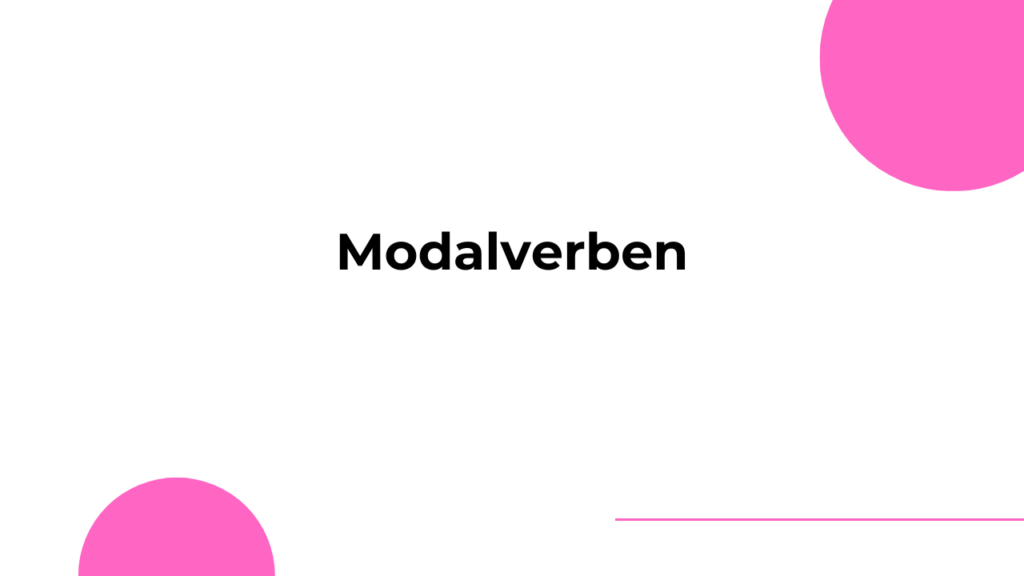
Hello! I would be happy to explain “Modalverben” to you, as you requested. In English, we call them “modal verbs.” They are a special category of German verbs that are used to express various attitudes, emotions, or necessities. These verbs help to give more context or convey a particular meaning to the main verb in the sentence.
In German, there are six primary modal verbs:
- können (can, to be able to)
- müssen (must, to have to)
- dürfen (may, to be allowed to)
- wollen (want, to want to)
- sollen (should, to be supposed to)
- mögen (like, to like to)
Visit our YouTube channel for more German learning tutorials!
Modal verbs are usually paired with another verb, which appears in its infinitive form (basic, unconjugated form). The modal verb is conjugated according to the subject, while the main verb stays in its infinitive form and is placed at the end of the sentence.
For example:
- Ich kann schwimmen. (I can swim.)
- Er muss arbeiten. (He has to work.)
Keep in mind that these verbs have irregular conjugation patterns, and you will need to memorize them. Also, remember that the word order in sentences with modal verbs might be different from what you’re used to in English.
Quiz – Modalverben:
For more examples, download our app on your or and enjoy a comprehensive learning experience!
